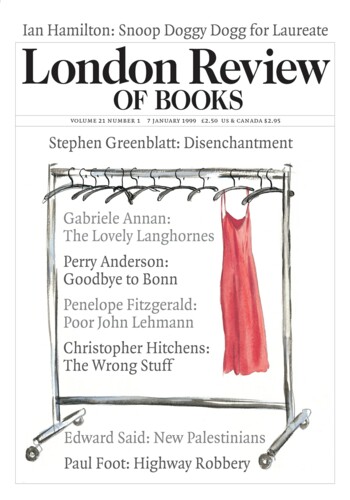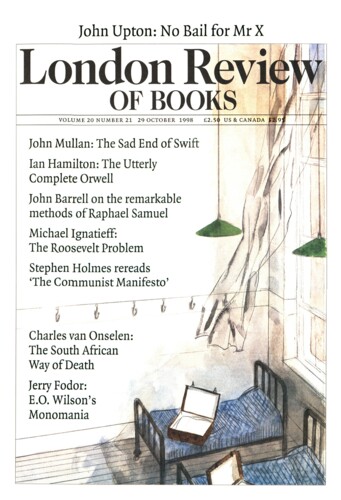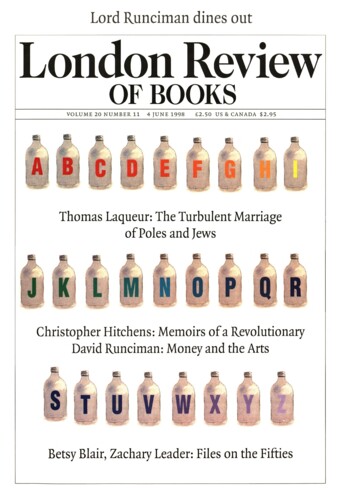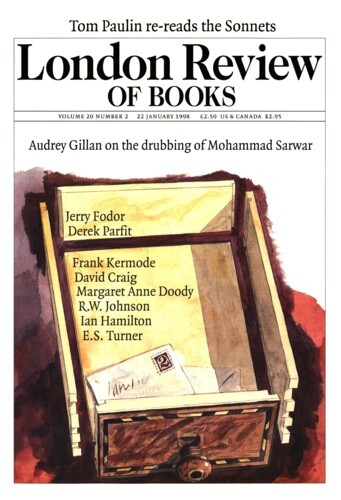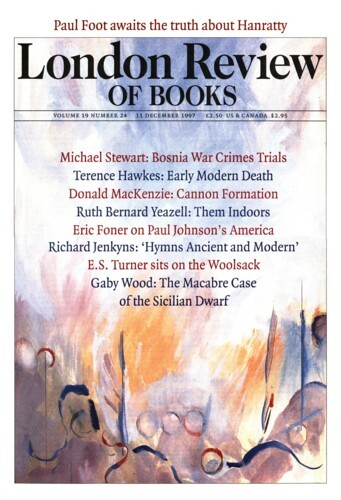Walking on Eyeballs: the history of gout
E.S. Turner, 7 January 1999
Ideally, one should be at the peak of fitness before starting to break the heads of Scots barbarians. The Emperor Severus, who undertook this necessary task in AD 208, suffered from gout. It is daunting to think that a man gripped by a malady so exquisitely sensitive to every bump of travel should have been carried in a litter all the way from Rome to Britain, then hoisted over the Hadrian and Antonine Walls to pursue a lot of hairy predators into the Hyperborean wastes. The campaign is described in Gibbon’s Decline and Fall, which I was belatedly reading when Gout: The Patrician Malady arrived for review. Strangely this book does not mention Severus, who is surely one of gout’s great heroes, but it confirms that Gibbon himself was suffering severely from gout while writing his ‘damned thick’ books about Rome. In later life he suffered also from a testicle swollen to the size of a melon, ‘which he did his best to ignore’, as one hopes everyone else did.‘
